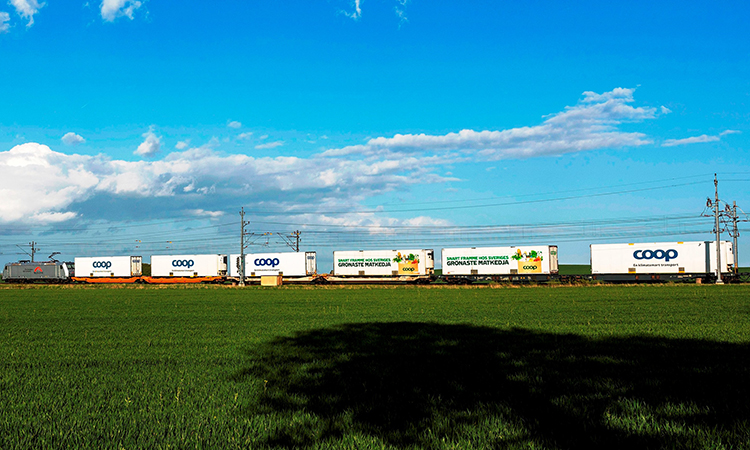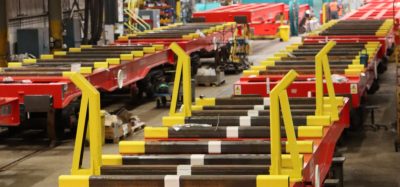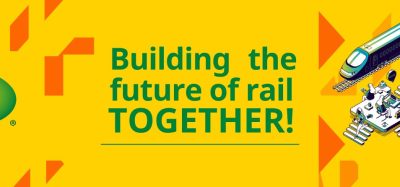TX Logistik completes test run of 838-metre train in Sweden
Posted: 10 May 2022 | Elliot Robinson (Editorial Assistant - Global Railway Review) | No comments yet
TK Logistik believe the expansion will improve transport capacities and make rail freight even more efficient for shippers.


Credit: Kasper Dudzik
TX Logistik AB, Swedish subsidiary of Germany’s TX Logistik AG, has run a train with a length of 838 metres in Sweden. The rail logistics company, which is part of the Mercitalia Group (Gruppo FS Italiane), operated the fully loaded train on the approximately 500-kilometre route between Malmö and Frövi (Örebro province). Foodstuffs from the Swedish retail chain Coop were transported. The Swedish transport infrastructure authority Trafikverket was the third partner involved in the test run. So far, only trains with a maximum length of 630 metres are permitted on most routes in Sweden.
“An expansion to 838 metres would significantly increase transport capacities and thus make rail freight transport even more efficient and attractive for shippers,” Lars Winther Sørensen, Managing Director of TX Logistik AB in Sweden, said. “This is an essential prerequisite for shifting more goods from road to rail. Even for goods that have so far been transported almost exclusively by road, I believe that more extensive use of rail is possible.”
The use of longer trains is also an important impulse for climate-smart rail transport. In particular, the combination of high load capacity per train and high speed ensures a highly productive transport system. The test train carried 48 semitrailers and travelled at speeds of up to 120 kilometres per hour. This was faster than trains in comparable test runs in other countries. It was driven by a four-axle locomotive, which is normally used in rail freight transport.
Coop transports food and other goods by rail in Sweden from 2009. Since 2012, TX Logistik has been running for the retail chain between Bro, 30 kilometres northwest of Stockholm, and Malmö. Just two years ago, the number of round trips was doubled from ten to 20.
“Today, 30 per cent of our transports are handled by rail,” Peter Rosendahl, Transport Manager at Coop Logistik, said. “We would like to increase the share further. That is why we participated in this forward-looking project and hope to be able to extend our trains in the near future.”







